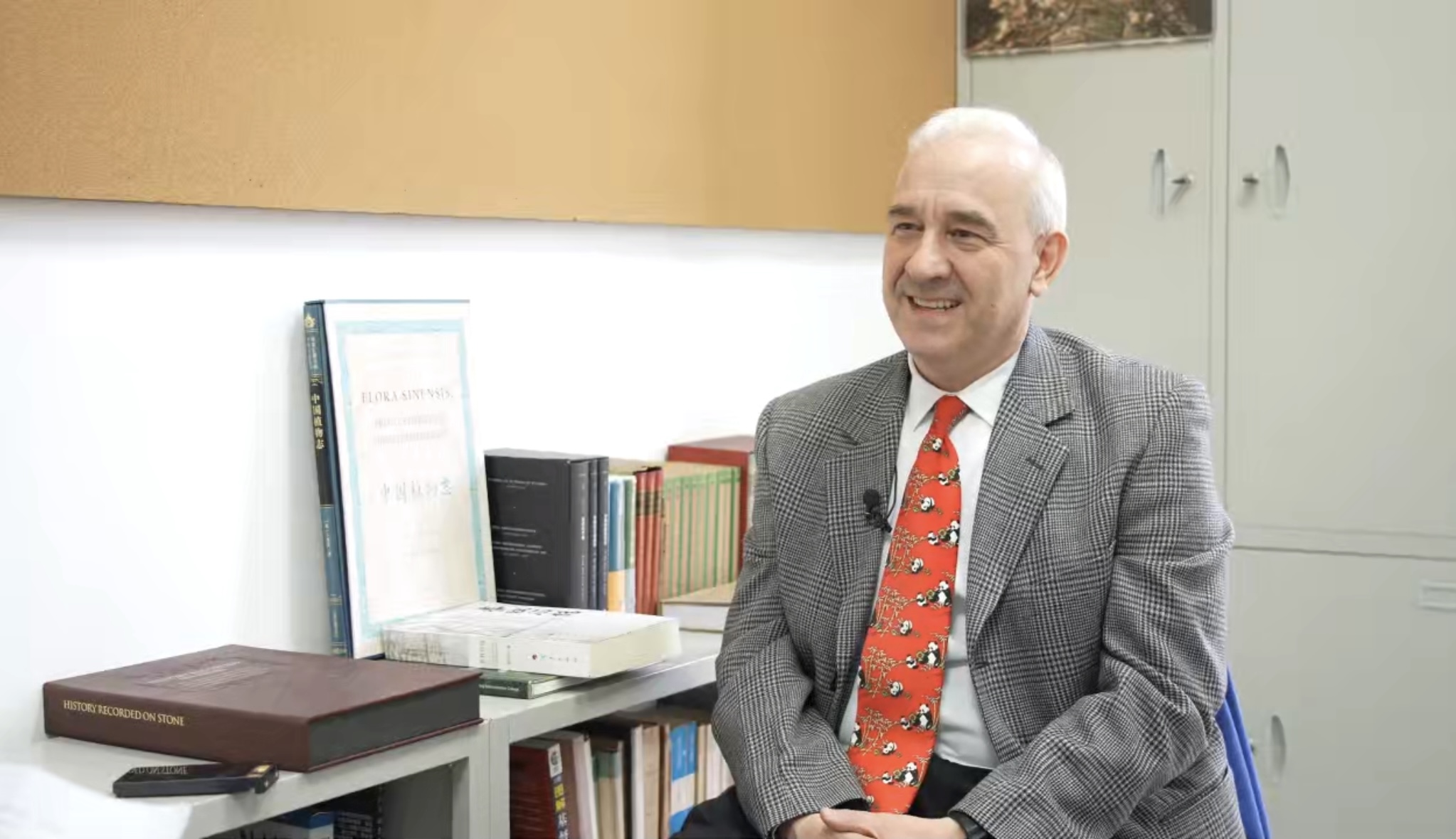Latin Expert Serves as Chinese Cultural Messenger

Michele Ferrero.?(Photo?by?Science?and?Technology?Daily)
By?BI?Weizi?and?LONG?Yun
During his 15 years in China, Italian sinologist Michele Ferrero has been steadfast in promoting scholarly research on cultural exchanges between China and the West. Through reams of translation, he has made great contributions to education and mutual understanding between China and Western countries, along with broadening knowledge of Latin and Western Classics, which he has been teaching at Beijing Foreign Studies University (BFSU) since 2009.
When talking about his life in Beijing to Science and Technology Daily (S&T Daily), it was clear he enjoys his work and life. Convenient digital payments, an advanced public transportation system, and friendly people all figure prominently in his reasons for enjoying China. Moreover, taking a walk in a public park and wandering about in the sea of books in a classic bookstore are his favorite things to do in his spare time.
It's precisely because he does not feel like an outsider in Beijing, which he considers home, that he is trying to introduce China as it is to the world, and promoting educational and cultural exchanges between BFSU students and foreign students, in order to deepen mutual understanding and cultivate more tolerance.
Why Latin is important
People have always argued that Latin is a dead language, as there are no native Latin speakers left in the world, so why learn it?
"Latin is a classical language that belongs to history. Two thousand five hundred years of Western literature is written in Latin. So learning Latin is very important for learning Western history," said Ferrero, adding that history is our root and also the proof that our ancestors actually lived in this world.
As a sinologist, Ferrero also realized the importance of learning Latin for studying Chinese history. "Most of the documents about China that have been circulating on the European continent for thousands of years are written in Latin," he said.
In the 16th and 17th centuries, Latin was a very common language, just like modern English. Ferrero discovered that as early as 1590, the "Four Books" (The Analects, Mencius, The Doctrine of the Mean, and The Great Learning) were translated into Latin, revealing the long history of communication between China and the Western world.
Spreading Chinese culture
The influence of Chinese culture is becoming more widespread in international communication. After studying cultural communication and researching Chinese culture and history, Ferrero suggested two effective ways to further introduce Chinese wisdom to the world.
"Some scholars believe that readers need to read the original text to understand the connotation of the book, but I think it is not easy. Not everyone has the ability to read original works. Cultural dissemination requires translation," said Ferrero, adding that the best way for many Italians to learn about Chinese philosophy is to read translated works.
Today, some libraries in Europe have preserved manuscripts brought back from China by European sinologists and missionaries in the 17th century, covering Chinese customs, the classical system, science and technology, and culture, among others. Many Latin texts remain untranslated and unstudied. As a sinologist and Latin expert, Ferrero has been intensively engaged in translating between Chinese and Latin, with the expectation of further translations and bringing to life the communication between East and West from the past.
In recent years, China's diplomatic discourse and behavior has emphasized the importance of people-to-people exchanges in foreign relations, and measures to expand people-to-people exchanges, such as a visa-free policy to several countries, have been gradually introduced, which resonates with Ferrero.
To better understand China, "I urge people to come and see China with their own eyes," said Ferrero, who is excited to share his feelings for China with the rest of the world because Chinese love for peace and stability, and seeking common ground while respecting differences, offer practical solutions to many challenging issues facing all of humankind.
The BFSU also contributed to the article.







